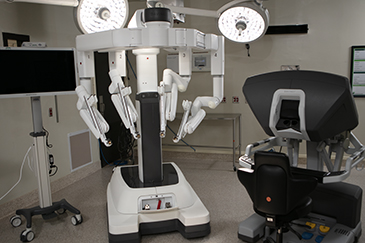Think you have a hernia? Don't know? Sign-up today for a free screening with a Master Surgeon on June 7.
Two locations: Candler Hospital and the St. Joseph's/Candler Pooler Campus
WHEN: June 7, 10 a.m. to 4 p.m.
Refreshments will be provided.
This event is no cost to you! This is an opportunity to be pain free!
One in four people will suffer from a hernia during their lifetime - an uncomfortable and painful bulge that gets worse when you cough, strain or lift.
Although more common in men, hernias also affect women and can sometimes go undetected.
St. Joseph's/Candler is the only Hernia Center of Excellence in the region and features a fast-track program designed to help you find relief for the pain and discomfort that comes with a hernia.
Our program features four hernia Master Surgeons and a highly-trained, certified surgical team who use a variety of surgical options to repair your hernia.
What does the screening entail?
The surgeon will do a physician exam, inspecting the bulges or protrusions in the groin, abdomen, or other areas. The surgeon may ask you to stand and cough or strain because those actions can make a hernia more noticeable.
Do you have symptoms?
There are three common types of hernias. Come to the free screening if you have:
- Abdominal pain or pressure that gets worse when you cough, strain or lift
- A lump in the groin
- A burning feeling in the lump
- For hiatal hernias: burping, nausea, vomiting, heartburn
- For umbilical hernias: a bulge near the belly button that is painful and becomes larger with strain
Walk-ins are welcome but to secure your spot and avoid a wait, please click the button below for the location that's convenient for you.
Demo the da Vinci Surgical System
You will not only receive a physical screening by a master hernia surgeon, but you can also experience a demonstration of the amazing da Vinci Robotic Surgical System.
Hernia surgery can be performed robotically, laparoscopically or open. At St. Joseph’s/Candler, the majority of hernia surgeries are performed on the da Vinci Robotic Surgical System. St. Joseph’s/Candler has offered minimally-invasive robotic surgery for more than 17 years.

Already the region's leader in robotic technology, St. Joseph's/Candler has added the latest da Vinci robot, the da Vinci Xi Surgical System, to our arsenal of advanced minimally-invasive machines. The da Vinci Xi Surgical System is the fourth generation in da Vinci technology. St. Joseph's/Candler currently has six Xi Surgical Systems - four at Candler Hospital, one at St. Joseph's Hospital and one at our SJ/C Pooler Campus. Learn more about the da Vinci Xi here.
What does this mean to you as a patient?
- Less pain
- Less blood loss and potential for transfusions
- Shorter hospital stay
- Quicker recovery and return to your normal daily activities